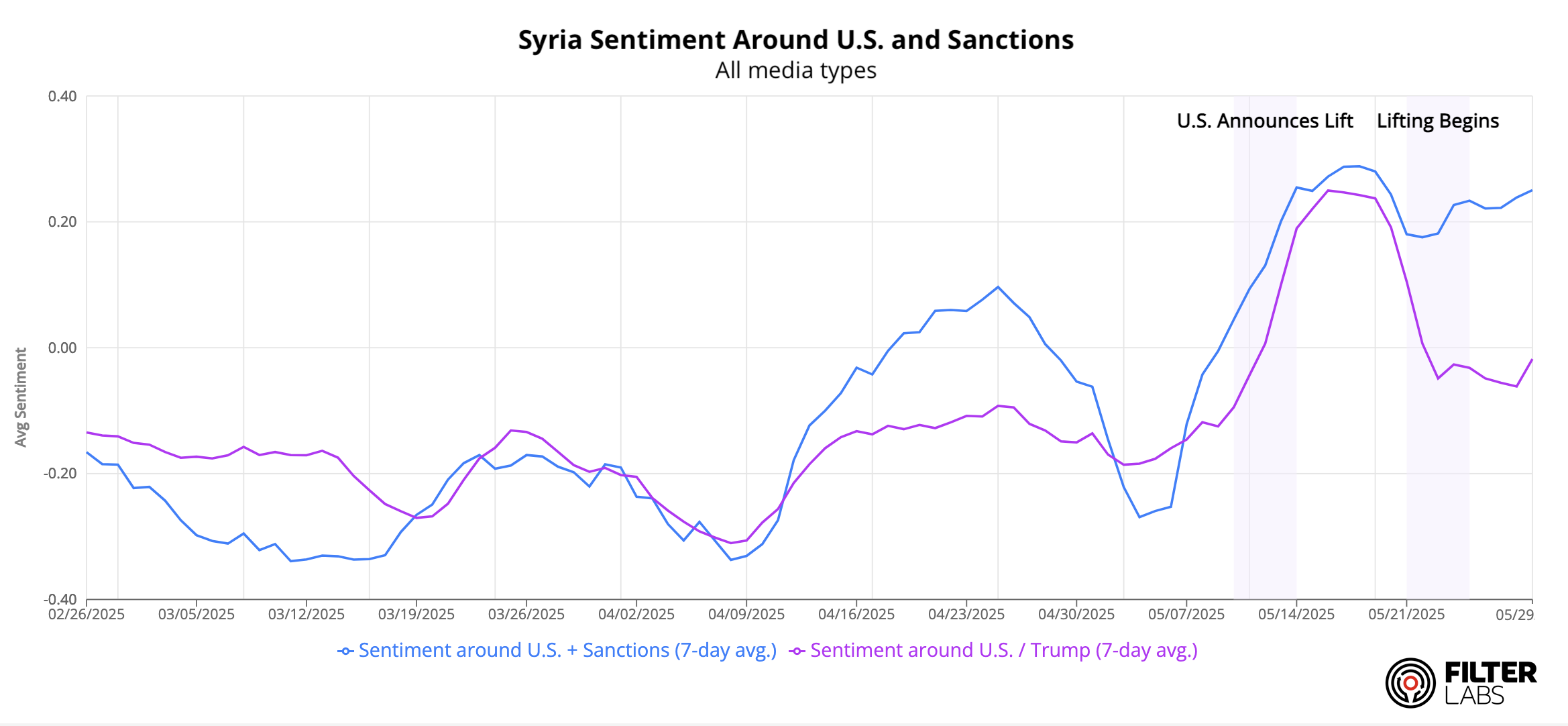The U.S. lifted its Syria sanctions. Are improved U.S.–Middle East relations on the horizon?
|
Sentiment around the United States soared in Syria when the Trump administration announced last week that it would be removing long-standing sanctions. While the positive response is largely unsurprising, FilterLabs analysis suggests there may be even more to the story. According to findings from our data platform, Talisman, the sanctions are only one factor in a larger trend towards positivity in Syrian discourse around the U.S., which could even result in a new baseline average sentiment. More importantly, the trend may signal an opening door to better relations between the U.S. and governments in the Middle East. FilterLabs analysts took a look at average sentiment in two different cross-sections of the Syrian information environment: any discourse mentioning the U.S. or President Trump (the purple line in the chart above), and discourse mentioning both the U.S. and sanctions (blue). As the two time series illustrate, average sentiment in Syrian news and social media has been trending generally upwards in both subsets of the discourse—and the two lines track relatively closely. In examining the artifacts underlying the charts, we found several distinct narratives contributing to the positivity in addition to direct discussion of the U.S. lifting its sanctions:
(You may have noticed the dip in sentiment in late May, more pronounced in the broader query not specific to sanctions. In the discourse, we found that this was in part because the Syrian media ecosystem picked up on the tragic murder of two Israeli Embassy staffers in Washington, D.C.) Overall, there is very positive sentiment surrounding the future of U.S. relations with Syria. Positivity has spiked, in part because the lifting of sanctions presents an opportunity for Syrians to reinvigorate their economy. Even beyond Syria, many state leaders in the Gulf region are now commenting on their commitment to strengthening ties with the U.S., and other countries in the region, like Iran, are opening up to U.S. diplomacy. Our data suggests this might be a moment of real diplomatic opportunity in the Middle East. Explore the Data in TalismanHave questions of your own? Want more hyper-local insights into hard-to-reach places (like Russia) around the world? Check out the live data on analytics platform, Talisman! All subscribers can check out the live chart above; those with full-access subscriptions can also investigate the individual artifacts underlying it, and so much more. If you don’t have a Talisman account yet, sign up now—a basic subscription is free! |
%20-%20Tradmark.png)
